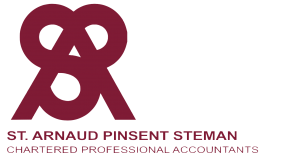Underused Housing Tax
Update for 2023
Note that the below information now only affects the 2022 filing year, or 2023 if you are not relying on the specified Canadian corporation/partnership/trust exemptions (which is a majority of Canadian residents). For 2023 and on, those previously relying on one of those exemptions no longer has to file. The source is the Fall Economic Statement 2023 (Link here: scroll down to the Underused Housing Tax section.) Note that while this has not received royal assent, the CRA has updated form UHT-2900 specifies that those exemptions only rely on the 2022 year.
Introduction
The Underused Housing Tax (“UHT”) is a new tax affecting the calendar year ended December 31, 2022 and all calendar years following. All affected taxpayers (including trusts, partnership, corporations) have to determine if they must file a return by April 30 of the following year. Since 2022 is the first year of this new tax, the Canada Revenue Agency will not charge late filing penalties as long as the prescribed UHT form is filed and all balances owing are paid by October 31, 2023.
Failure to file this by the required date will result in a $5,000 penalty for individuals and a $10,000 penalty for taxpayers that are not individuals (e.g. corporations). This amount may be greater should UHT be payable in the year. Interest is also charged on late filed/paid amounts.
About the Underused Housing Tax
The UHT is governed by the Underused Housing Tax Act (“UHTA”) and is the Canadian federal government’s answer to the high house prices in Canada due to speculation from foreign investors. The UHT received royal assent on June 9, 2022 and retroactively took effect on January 1, 2022. This act is aimed largely at non-resident owners of vacant or underused residential property located in Canada. Most Canadian individuals and corporations will not have to pay any tax, but depending on whether they are classified as excluded owners or not, may have to still file an annual return.
The tax payable is 1% of the assessed value of the underused property. Most Canadian taxpayers that must file a form will fall into an exemption that reduces the tax to zero.
The prescribed form that must be filed is UHT-2900, Underused Housing Tax Return and Election Form and is applicable to residential property owned as of December 31 of each year. Each taxpayer must file a UHT-2900 form for each residential property located in Canada that they own. For example, this means that two individuals working in a partnership that owns three residential properties must file six UHT returns.

What is a Residential Property?
Per the UHTA, residential property “means property (other than prescribed property) that is situated in Canada and that is:
(a) a detached house or similar building, containing not more than three dwelling units…
(b) a part of a building that is a semi-detached house, rowhouse unit, residential condominium unit or other similar premises...
(c) a prescribed property”
Examples of residential property would include (but are not limited to) detached houses, duplexes, triplexes, non-commercial cottages, townhouses, and residential condominium units. Excluded properties would include (but are not limited to) quadruplexes, high-rise apartments, buildings that are primarily commercial, hotels, mobile homes, and various trailers.
Who Has to File the Annual Return?
Taxpayers who own residential property who are excluded owners do not have to file a UHT return. Common excluded owners include the following:
· Individuals who are Canadian citizens or permanent residents of Canada, unless the individual is a partner in a partnership or the trustee of a trust (including bare trusts).
· A Canadian corporation listed on a Canadian stock exchange
· Trustees of a mutual fund trust, real estate investment trust (“REIT”), or specified investment flow-through trust (“SIFT) as defined by the Income Tax Act.
· A registered charity as defined by the Income Tax Act.
There are other excluded owners. Please refer to page 8 of the UHT-2900 form, section 2 of UHTA, under excluded owner, or the attached checklist below. Note that an individual may be considered as a partner of a partnership without their knowledge and thus may have to file a return. See below for examples.
Partnerships
Partnerships are not defined in the UHTA, and thus what constitutes a partnership is a question of fact. Per case law, a partnership must meet three criteria. To quote CRA tax folio S4-F16-C1, “one must demonstrate that two or more persons are:
· Carrying on business
· In common
· With a view to profit”
The folio is linked here. The Canada Revenue Agency (“CRA”) has provided further commentary in the form of questions and answers here.
Due to the risk of large penalties on non-filing, we recommend that everyone who suspects they may be a partner in a partnership file a UHT-2900 form each year.
Who Has to Pay Tax on UHT?
Everyone who has to file a UHT and does not fall into one of the exemptions will have to pay the tax.
Unless there is a non-resident owner, partner, or trustee, most corporations, partnerships, and trusts will be exempt due to being a specified Canadian corporation (less than 10% of votes and value owned by non-resident/non-Canadian citizens), specified Canadian partnerships (each partner is an excluded owner or specified Canadian corporation), or a specified Canadian trust (each beneficiary is an excluded owner or specified Canadian corporation).
Other exemptions at a high level include:
· A new owner of the property who did not own it in the prior nine years
· A property under 90% complete, or a property that is not inhabitable for part of the year
· A property that is the primary resident of an individual, their spouse or common-law partner, or their child attending a designated learning institute
· A property that is rented out to an arm’s length individual or at a fair value to a non-arm’s length individual
This list is only a summary of common exceptions. Please refer to the checklist or the UHTA for details.

Select Examples
| Scenario | File UHT-2900? | Pay UHT? |
|---|---|---|
| An individual Canadian resident taxpayer who owns a principal residence in Canada would be an excluded owner and would not have to file UHT-2900 nor pay UHT. | No | No |
| An individual Canadian resident taxpayer who owns 100% of a rental property in Canada with the intention of profit would be an excluded owner and would not have to file UHT-2900 nor pay UHT. | No | No |
| An individual Canadian resident taxpayer who owns shares in a real estate investment trust is considered an excluded owner and would not have to file UHT-2900 nor pay UHT. | No | No |
| An individual non-resident who owns a vacant property in Canada would not be considered an excluded owner. The individual would have to rely on an exemption from paying tax (see above) and if they do not fall into one, would have to both file UHT-2900 and pay UHT. | Yes | Maybe |
| Two Canadian resident spouses who jointly own a recreational cottage would be considered as not being partners in partnership due to not meeting the “with a view to profit” criteria. Since they are not in partnership, they would be considered as excluded owners and thus would not have to file UHT-2900. | No | No |
| Two Canadian resident spouses who own a rental house together and file form T776 on their individual tax returns would not be considered excluded owners. These taxpayers would be considered to be carrying on business in common, with a view to profit and thus would each have to file form UHT-2900 as partners in a partnership. They would not have to pay UHT due to the partnership being a specified Canadian partnership. | Yes | No |
| Four Canadian residents form a partnership which own four rental properties and annually file form T5013 (partnership return). They would not be considered excluded owners. These taxpayers would be considered to be carrying on business in common, with a view to profit and thus would each have to file form UHT-2900 for each property. This group would have to file sixteen UHT-2900 forms but would not have to pay UHT due to the partnership being a specified Canadian partnership. | Yes | No |
| A corporation owned by three Canadian individuals that owned a residential property in Canada would not be considered an excluded owner. It would be exempt from paying UHT due to being a specified Canadian corporation. It would have to file UHT-2900, but would not have to pay UHT. | Yes | No |
| A corporation owned equally by three Canadian individuals and one non-resident individual would not be considered an excluded owner. It would not be exempt from paying UHT due to being a specified Canadian corporation, and would have to find another exemption if it does not wish to pay UHT (e.g. rent to an arm’s length individual or fair rent (5% of the property value) to a non-arm’s length individual. | Yes | Maybe |
| A corporation owned by a Canadian resident that only owned a commercial property in Canada would not have to consider UHT due to not owning residential property. | No | No |
| A corporation owned by three Canadian individuals that only owned a residential property in the United States of America would not have to consider UHT due to not owning a residential property in Canada. | No | No |
| A corporation owned by a Canadian resident owned a residential property as of January 1 of the affected year, but sold it in June of the same year. Due to the corporation no longer owning property as of December 31 of the affected year, it does not need to file nor pay UHT. | No | No |
Filing a Return
The return can either be filed online or sent into the CRA via mail. For individuals or corporations in Alberta, British Columbia, Manitoba, Saskatchewan, Ontario (except Barrie, Sudbury, or Toronto), the three territories, USA, UK, France, Netherlands, or Denmark, the UHT form should be sent to:
Winnipeg Tax Centre
Post Office Box 14001,
Station Main
Winnipeg, MB, Canada R3C 3M3
Fax: 204-984-5164
All individuals in locations not listed above should send the UHT form to:
Sudbury Tax Centre
1050 Notre Dame Avenue
Sudbury, ON, Canada P3A 5C2
Fax: 705-671-3994 and 1-855-276-1529
UHT Records
Every owner of residential property (whether exempt or not) should keep their UHT records for six years from the tax year to which they are applicable.
Other Matters
Corporations will have to obtain an Underused Housing Tax business number (RU). Corporations or their representatives can register using Business Registration Online.

Conclusion
This blog post is not exhaustive, but it rather serves as an introduction to the Underused Housing Tax and how it may potentially affect you. Please refer to the resources below for further details, or contact our office at 780-448-0399 if you have any questions. We are also able to prepare the UHT-2900 form on your behalf.
Resources
CRA - Introduction to the Underused Housing Tax
CRA - Questions and Answers About the Underused Housing Tax
CRA - Underused Housing Tax Technical Information
Regulations to the Underused Housing Tax Act
New Paragraph

Book a complimentary accounting & tax strategy session

St. Arnaud Pinsent Steman CPA
1653-91 Street SW,
Edmonton, AB, T6X 0W8
(780) 448-0399
Business Hours
- Mon - Fri
- -
- Sat - Sun
- Closed
All Rights Reserved | St Arnaud Pinsent Steman


